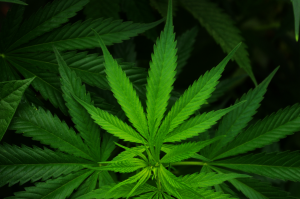Cushman: By Regulating Morality, the Government Protects Its Citizens
November 7, 2019
To some extent, human morality is formed around human health and well-being. Casual sex with multiple partners, gambling and drug use have the potential for detrimental results, and for this reason, it is reasonable for them to be at the center of many moral arguments throughout time and today. These behaviors hold the capacity to endanger both individuals and society, which is why some governmental regulation is necessary in order to promote the health and wellness of the public.
It is estimated that over 20 million people in the United States have a substance abuse disorder. This would mean that there are more people with substance abuse disorders in this country than there are with cancer. There are certain dangers associated with other “immoral” behaviors that plague society in a real and dangerous way. There are well-known health risks associated with things like drug use and sex with multiple partners, such as liver problems, brain damage and the possibility of contracting an STI. Ultimately, if people choose to engage in behavior that could negatively affect their health and well-being, that is their choice, but it should not be allowed to snowball into a public health risk.
The problem arises when a person’s right to self-determination infringes on other people’s rights and overall well-being. It is clear that the negative effects of smoking, alcohol and drug use extend far beyond the individual. Children who have seen their parents drunk (even only a few times) are twice as likely to repeatedly get drunk themselves. When parents abuse drugs, this trend becomes even stronger, as the children of addicts are eight times more likely to develop an addiction in their own life. Kids see what their parents do and copy that behavior.
Families who are exposed to substance abusers are not only more likely to establish an addiction themselves, but they also are more likely to have unhealthy family dynamics and certain psychological consequences as a result of their relationship with a substance abuser. This is not to imply that everyone who drinks or engages in drug use is an addict or causes harm to those around them, or that substance abusers are innately terrible people. It is simply to state that there are very real consequences that other people might have to face due to the lifestyles of others, regardless of their own personal decisions.
Furthermore, society as a whole faces consequences as a result of immoral behavior. Substance abuse disorders damage the economy. They cost more than $420 billion a year in the form of healthcare costs, lower economic productivity and costs accrued in the criminal justice system. Substance abuse does not just affect abusers and their families — it affects everyone in the United States.
Other behaviors have consequences as well. It is realistic to admit that pornography can have detrimental aspects that damage others. Studies show that exposure to violent pornography puts individuals at increased risk for committing sexual offenses, and holding beliefs that trivialize rape or blame rape victims themselves. Again, this is not to say that everyone who watches porn is a sex offender or a danger to society. However, with little regulation the industry can have a real negative impact. Widespread “personal and private” consumption does not preclude damaging behaviors and opinions.
Morality can be difficult to define, but ultimately it comes down to this — one of the government’s primary responsibilities is to protect its citizens. When the government does not regulate dangerous behavior, it neglects an important obligation. Sometimes the government must curtail our rights as citizens in order to adequately defend us. Ultimately, we must sacrifice our rights to certain behaviors so that the government’s protection can be applied adequately and for all citizens. Common sense regulation of morally corrupt behavior is necessary to ensure people’s safety. It doesn’t mean the legislation is abnormal or unnecessarily oppressive. For instance, smokers have the right to smoke, but they are limited to certain areas because their choice should not damage the health of those around them.
Still, I am not naïve, and I understand that drug abuse and violent pornography will not disappear just because the government bans them. Nor do I believe that all behaviors that I disagree with should be ultimately abolished. However, I do firmly believe that if drug use was regulated effectively, families of drug users would be spared the consequences of a decision that wasn’t theirs to make. Porn is an incredibly hard industry to regulate, but innovative regulation could make the industry more compassionate towards women and encourage its consumers to be more compassionate as well. Regulation of moral issues promotes the health and well-being of society and that, simply put, is a good thing.










